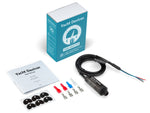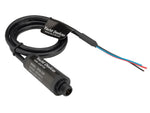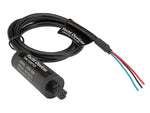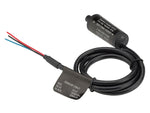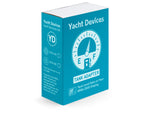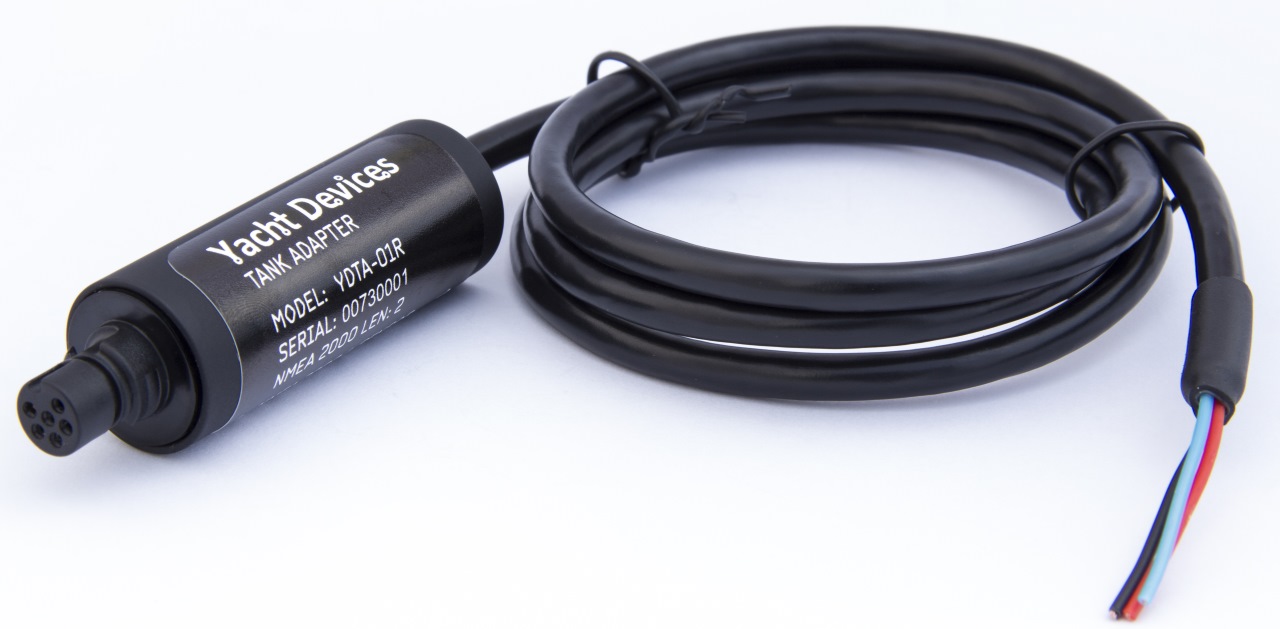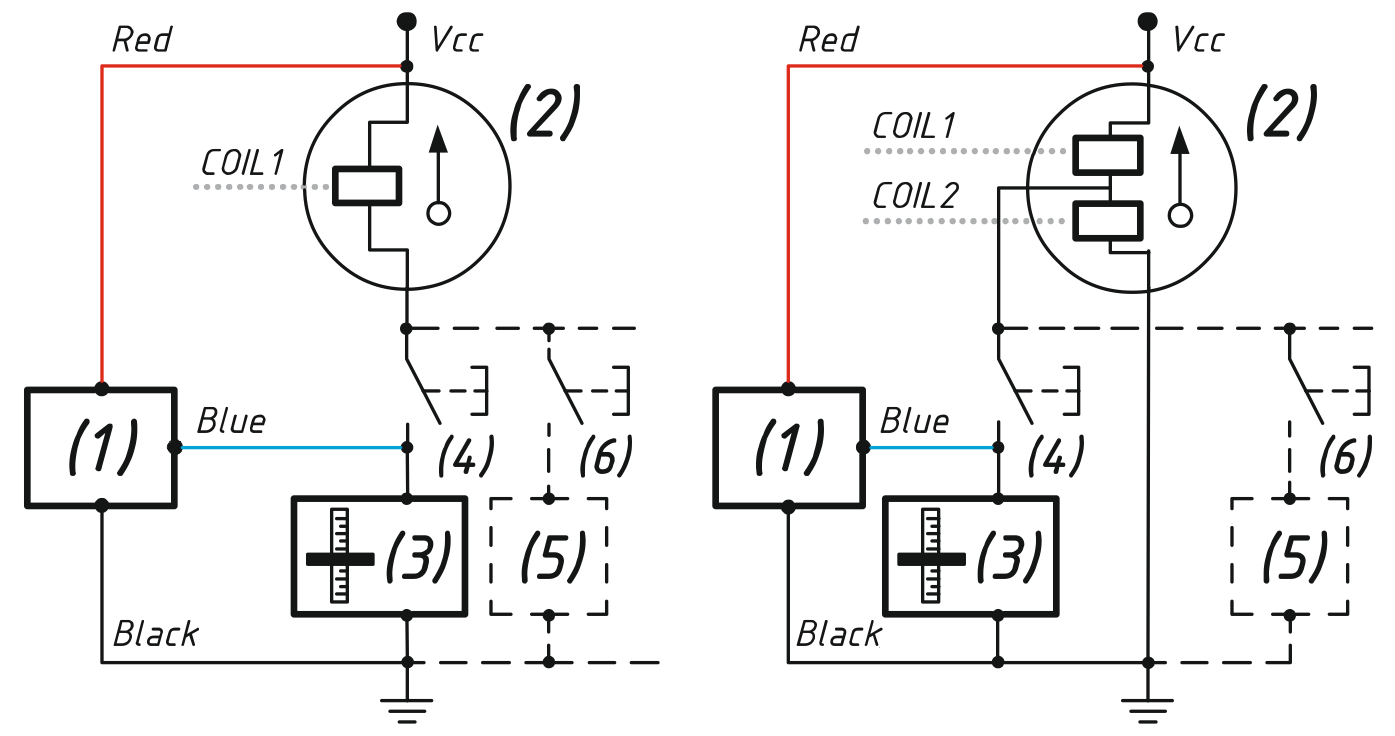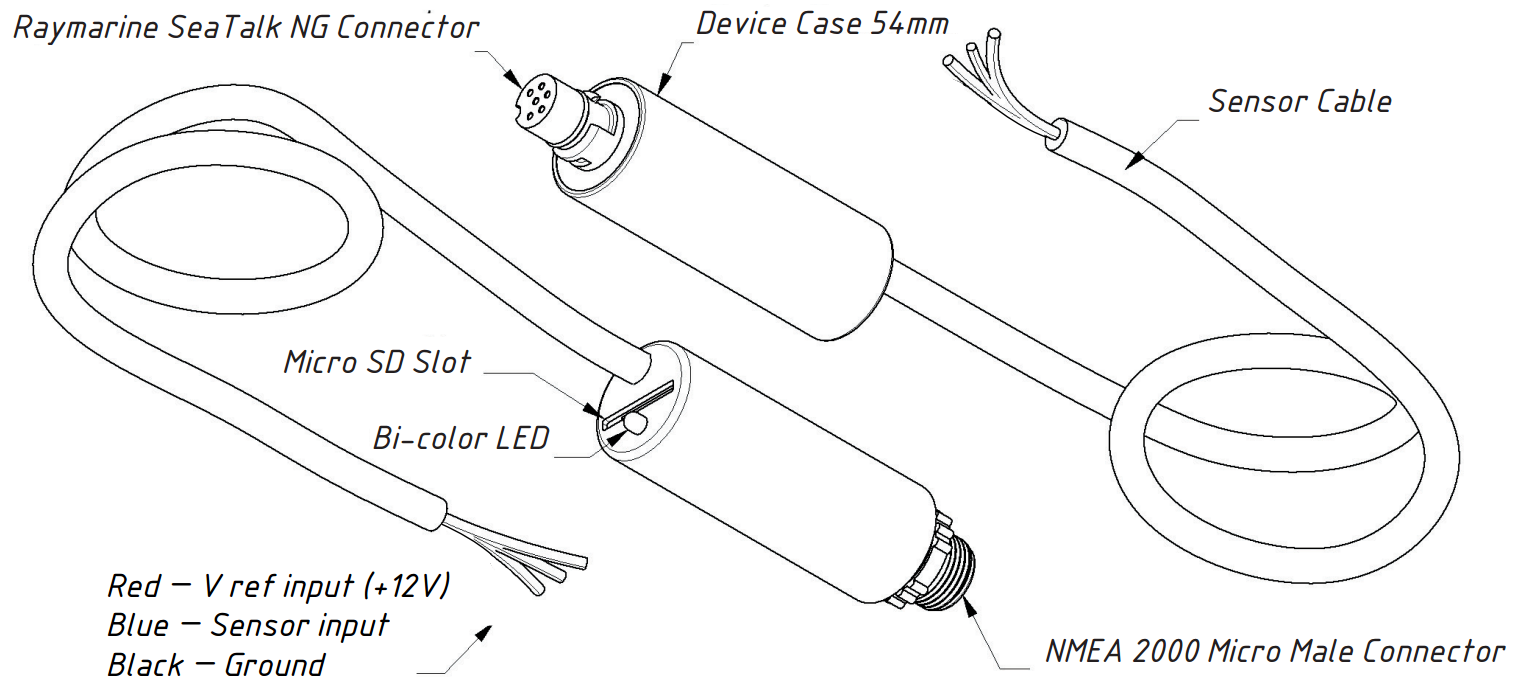The NMEA 2000 Tank Adapter YDTA-01 allows you to connect an existing resistive type fluid level sensor installed on a tank and display the fluid level on NMEA 2000 devices, including chart plotters and instrumental displays.
The Adapter can be configured to report one of the seven fluid types defined in the NMEA 2000 standard: Diesel Fuel, Gasoline Fuel, Oil, Fresh Water, Waste Water, Black Water (Sewage), or Live Well. The tank number can be configured up to 16 tanks of one type are allowed in an NMEA 2000.
The Device can be used with European (10 to 180 Ohm range), American (240 to 33 Ohm range) or Japanese (0 to 310 Ohm range) standard fluid level sensors as well as with any nonstandard sensors with maximum resistance less than 400 Ohm.
Picture 1. Tank Adapter YDTA-01R (with SeaTalk NG connector)
The Adapter can be installed as a standalone measuring device, in parallel with an existing analog gauge (2-coils and 1-coils gauges are supported, see Picture 2), or in parallel with a Volvo Penta engine's MDI (Mechanical Diesel Interface) box. If you have a combined gauge where you choose the value to display with a button, the Adapter will smoothly work with it, too.
Picture 2. Connection in parallel with an existing analog 1-coil (left) and 2-coil (right) gauges: (1) - YDTA, (2) - Gauge, (3) - Fluid sensor, (4) - Optional button, (5) and (6) - Other sensors (optional)
Fluid tank level sensor readings can be calibrated with 12 calibration points to get accurate readings on tanks of any shape. Parasitic resistance of the sensor wires can be compensated in the Device's settings.
The Adapter is equipped with a Micro SD card slot intended for configuration, firmware updates, diagnostics and data logging. No special software is required. You only need a device (laptop or smartphone) with a MicroSD card reader and a simple text editor.
The Tank Adapter can be converted to a pressure sensor adapter and work as an adapter for a Volvo Penta KAD/TAMD oil pressure sensor or other resistive or voltage pressure sensor.
Use with our other products:
- the Adapter can turn on and off digital switching equipment, e.g. alarm you with the Alarm Button or turn on pump with the Circuit Control;
- the Adapter can record liquid level to the MicroSD card, but you can also use a recording device like our Voyage Recorder (see the list of data types) to store data from multiple Adapters along with all other vessel data;
- you can use our Wi-Fi Gateway to see all your tanks right from a browser or marine apps;
- the Text Display with "Engine and Tank Monitoring" firmware support diesel, gasoline, fresh and black water tanks.
- the Adapter can also be configured with special "Installation Description" strings. Some MFD's allow entering text to the device properties. This text is usually used to save installation notes, the device location or the installer's contacts. You can also enter these strings with our free CAN Log Viewer software, connected to NMEA 2000 with the USB Gateway or Wi-Fi Gateway.
The Device is powered from the NMEA 2000 network and provides high voltage galvanic isolation between NMEA 2000 and sensor inputs.
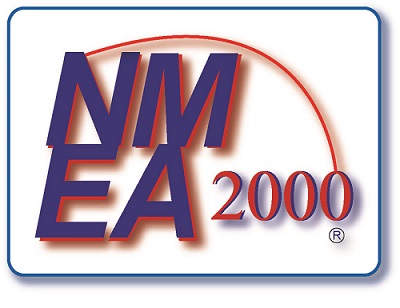 The Adapter is compatible with a virtually all equipment supporting NMEA 2000 and is certified by National Marine Electronics Association. Raymarine SeaTalk NG, Simrad SimNet, and Furuno CAN networks are branded versions of NMEA 2000 and differ only by connector type. Garmin uses the NMEA 2000 Micro connector in its devices, which is compatible with the DeviceNet Micro connector.
The Adapter is compatible with a virtually all equipment supporting NMEA 2000 and is certified by National Marine Electronics Association. Raymarine SeaTalk NG, Simrad SimNet, and Furuno CAN networks are branded versions of NMEA 2000 and differ only by connector type. Garmin uses the NMEA 2000 Micro connector in its devices, which is compatible with the DeviceNet Micro connector.
The Adapter is supplied with a connector compatible with SeaTalk NG or a connector compatible with NMEA 2000 Micro Male (see the picture below). For other networks, an adaptor cable may be required.
Picture 3. Drawing of Tank Adapter
For additional technical details, please see the User Guide and FAQ.





